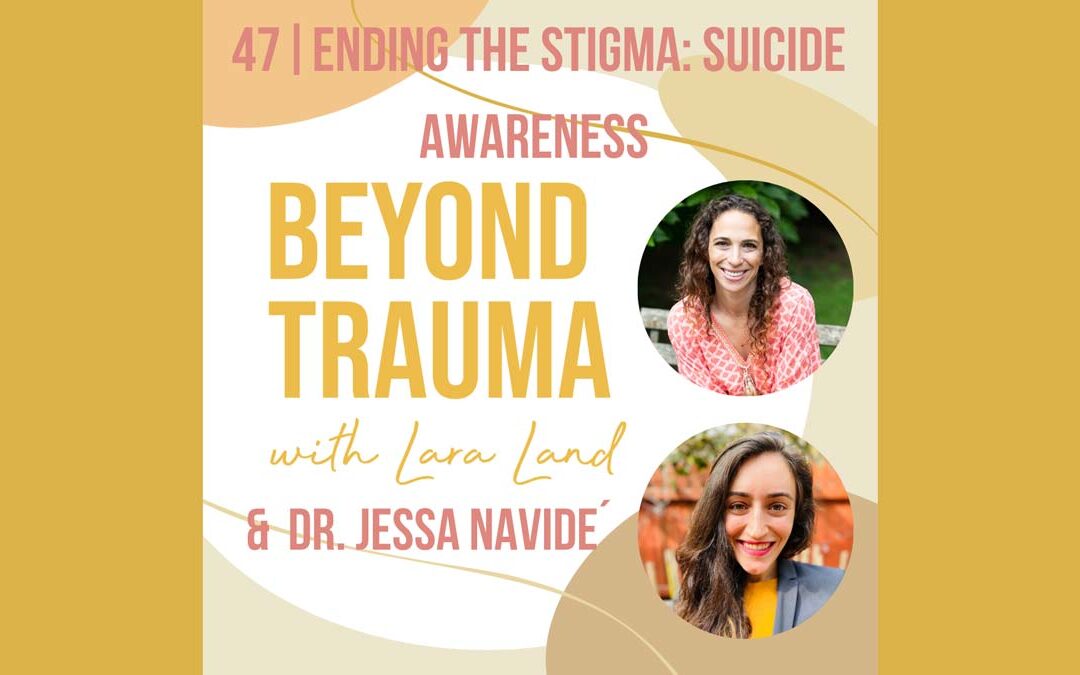In a world where mental health awareness is gaining momentum, it is crucial to address the sensitive issue of suicide prevention.
Suicide is a global public health concern, and understanding its link to trauma is essential for effective prevention strategies. This blog aims to shed light on the connection between trauma and suicide, exploring the impact of the trauma of suicide attempts and the potential role of trauma-sensitive yoga in the healing process.
The Link Between Trauma and Suicide:
Trauma, whether experienced in childhood or later in life, can significantly increase the risk of suicidal thoughts and behaviors. The effects of trauma on mental health are profound, often leading to conditions such as depression, anxiety, and post-traumatic stress disorder (PTSD). Individuals who have experienced trauma may struggle with overwhelming emotions, a sense of isolation, and a diminished ability to cope with life’s challenges, making them more vulnerable to suicidal ideation.
The Trauma of Suicide Attempts:
Survivors of suicide attempts face a unique set of challenges, including the trauma associated with the event itself. The aftermath of a suicide attempt can leave individuals grappling with guilt, shame, and a sense of hopelessness. Addressing the trauma stemming from a suicide attempt is a crucial aspect of comprehensive suicide prevention efforts.
Trauma-Sensitive Yoga as a Healing Tool:
Trauma-sensitive yoga is an emerging therapeutic approach that recognizes the mind-body connection in the healing process. Traditional yoga practices are adapted to be more attuned to the needs and sensitivities of individuals who have experienced trauma. This form of yoga prioritizes creating a safe and supportive environment, empowering individuals to explore their bodies and emotions at their own pace.
How Trauma-Sensitive Yoga Helps:
- Embodied Healing: Trauma-sensitive yoga encourages individuals to reconnect with their bodies, fostering a sense of safety and self-awareness. This embodied approach can be particularly beneficial for those who have experienced the trauma of a suicide attempt.
- Regulating the Nervous System: Trauma often dysregulates the nervous system, contributing to heightened stress responses. Trauma-sensitive yoga incorporates practices that focus on breath awareness and gentle movements, helping to regulate the nervous system and promote relaxation.
- Building Resilience: Engaging in trauma-sensitive yoga can contribute to the development of emotional resilience. Through mindfulness and self-compassion practices, individuals can cultivate a greater ability to navigate challenging emotions and life circumstances.
Suicide prevention requires a multifaceted approach that considers the complex interplay between trauma and mental health. By acknowledging the link between trauma and suicide, we can better tailor interventions to address the unique needs of individuals at risk. Trauma-sensitive yoga emerges as a promising tool in this journey, offering a holistic approach to healing that encompasses both the mind and the body. As we strive for a world where mental health is prioritized, integrating trauma-sensitive practices into suicide prevention efforts can pave the way for a more compassionate and effective approach to supporting those in need. There’s no one to address this issue better than Dr. Jessa Navidé, a multiple suicide attempt survivor who is now a trauma-sensitive yoga practitioner and teacher and a clinical psychologist helping others who have experienced suicidal thoughts or attemps.
Listen to Dr. Jessa Navidé on the Beyond Trauma Podcast.
Sign up for Dr. Jessa’s Suicide Prevention Course


Recent Comments